Subaru Solterra vs VW ID.4 – Which model is better for everyday use?
Both models have their strengths – but which one suits you more?
Compare performance, efficiency, price and space directly: Subaru Solterra or VW ID.4?
Costs and Efficiency:
When it comes to price and running costs, the biggest differences usually appear. This is often where you see which car fits your budget better in the long run.
VW ID.4 has a evident advantage in terms of price – it starts at 34600 £, while the Subaru Solterra costs 42800 £. That’s a price difference of around 8276 £.
In terms of energy consumption, the advantage goes to the VW ID.4: with 15.60 kWh per 100 km, it’s barely noticeable more efficient than the Subaru Solterra with 16 kWh. That’s a difference of about 0.40 kWh.
As for range, the VW ID.4 performs somewhat better – achieving up to 569 km, about 103 km more than the Subaru Solterra.
Engine and Performance:
Under the bonnet, it becomes clear which model is tuned for sportiness and which one takes the lead when you hit the accelerator.
When it comes to engine power, the VW ID.4 has a evident edge – offering 340 HP compared to 218 HP. That’s roughly 122 HP more horsepower.
In acceleration from 0 to 100 km/h, the VW ID.4 is noticeable quicker – completing the sprint in 5.40 s, while the Subaru Solterra takes 6.90 s. That’s about 1.50 s faster.
In terms of top speed, the VW ID.4 performs a bit better – reaching 180 km/h, while the Subaru Solterra tops out at 160 km/h. The difference is around 20 km/h.
There’s also a difference in torque: VW ID.4 pulls convincingly stronger with 679 Nm compared to 336 Nm. That’s about 343 Nm difference.
Space and Everyday Use:
Cabin size, boot volume and payload all play a role in everyday practicality. Here, comfort and flexibility make the difference.
Both vehicles offer seating for 5 people.
In curb weight, VW ID.4 is minimal lighter – 1975 kg compared to 2013 kg. The difference is around 38 kg.
In terms of boot space, the VW ID.4 offers somewhat more room – 543 L compared to 452 L. That’s a difference of about 91 L.
When it comes to payload, VW ID.4 slight takes the win – 551 kg compared to 537 kg. That’s a difference of about 14 kg.
Who comes out on top?
Overall, the VW ID.4 shows itself to be outperforms in nearly all aspects and secures the title of DriveDuel Champion.
It convinces with the more balanced overall package and proves to be the more versatile choice for everyday use.
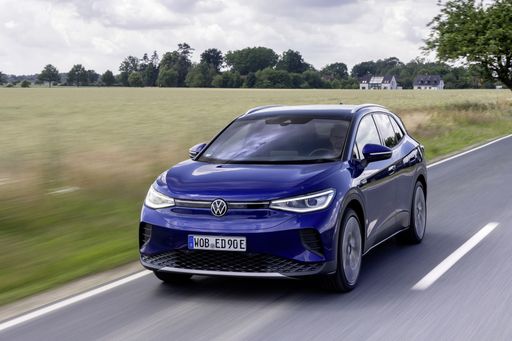 @ Volkswagen AG / VW Media
@ Volkswagen AG / VW Media
VW ID.4
Subaru Solterra
The Subaru Solterra represents the brand's first venture into the all-electric vehicle market, combining Subaru's renowned all-wheel-drive capabilities with eco-friendly technology. Its sleek and modern design is complemented by a spacious interior, ensuring comfort for both driver and passengers. With a focus on sustainability and innovation, the Solterra is poised to appeal to environmentally conscious consumers seeking adventure without compromising on performance.
details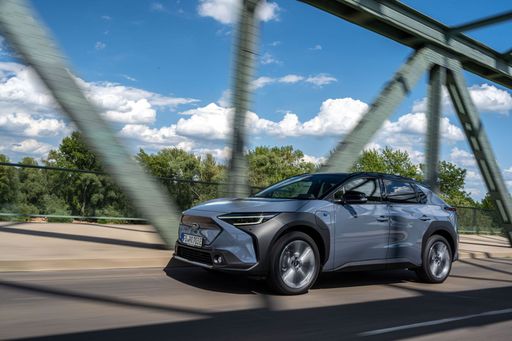 @ Subaru Corporation
@ Subaru Corporation
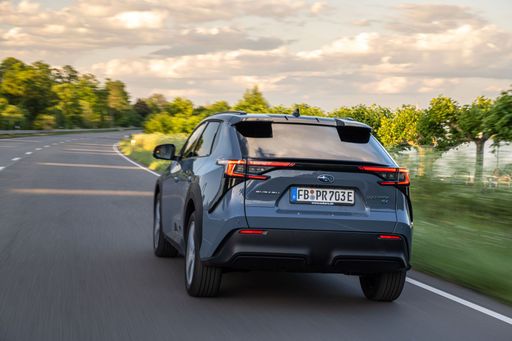 @ Subaru Corporation
@ Subaru Corporation
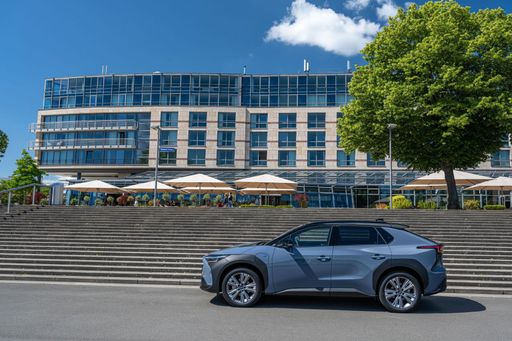 @ Subaru Corporation
@ Subaru Corporation
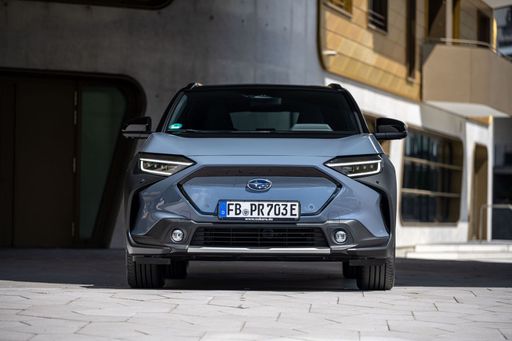 @ Subaru Corporation
@ Subaru Corporation
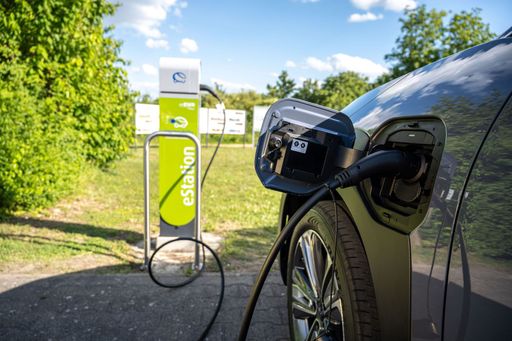 @ Subaru Corporation
@ Subaru Corporation
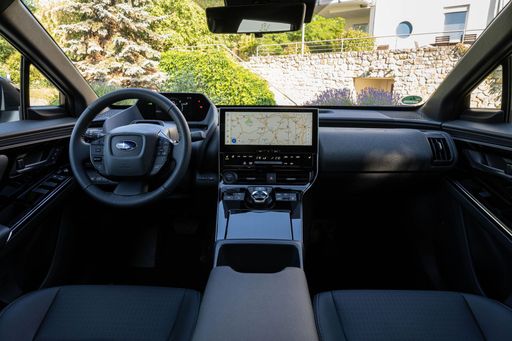 @ Subaru Corporation
@ Subaru Corporation
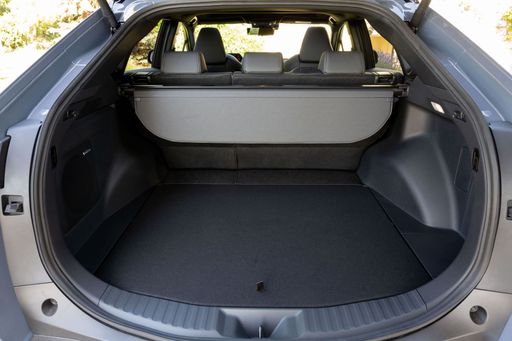 @ Subaru Corporation
@ Subaru Corporation
VW ID.4
The VW ID.4 is a calm, roomy electric SUV that turns everyday driving into a quietly confident experience, its practical packaging and smooth manners tailored perfectly for family life. Volkswagen's solid build and intuitive interior tech mean you get electric practicality without the sci‑fi theatrics, making the ID.4 a sensible, surprisingly likable choice for most buyers.
details @ Volkswagen AG / VW Media
@ Volkswagen AG / VW Media
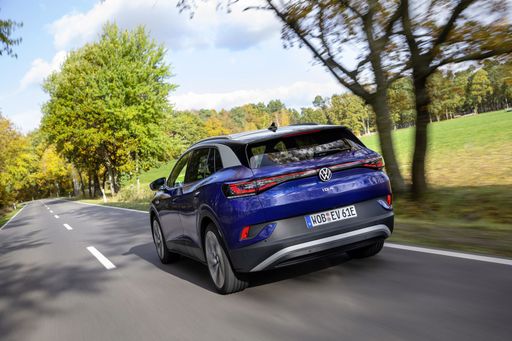 @ Volkswagen AG / VW Media
@ Volkswagen AG / VW Media
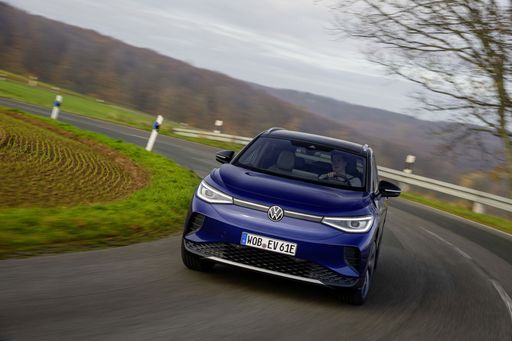 @ Volkswagen AG / VW Media
@ Volkswagen AG / VW Media
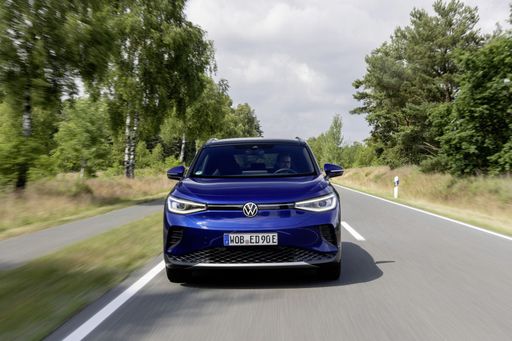 @ Volkswagen AG / VW Media
@ Volkswagen AG / VW Media
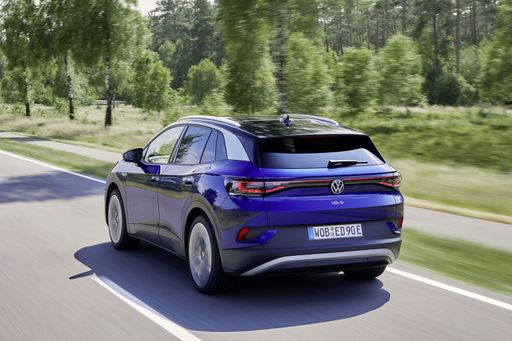 @ Volkswagen AG / VW Media
@ Volkswagen AG / VW Media
 @ Volkswagen AG / VW Media
@ Volkswagen AG / VW Media
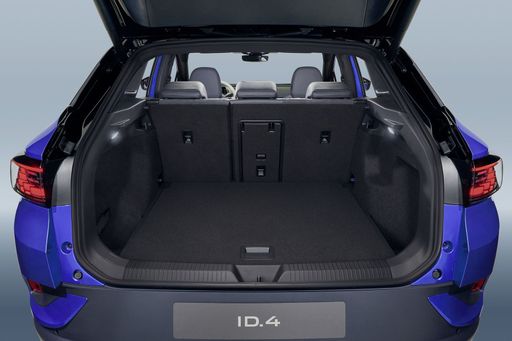 @ Volkswagen AG / VW Media
@ Volkswagen AG / VW Media
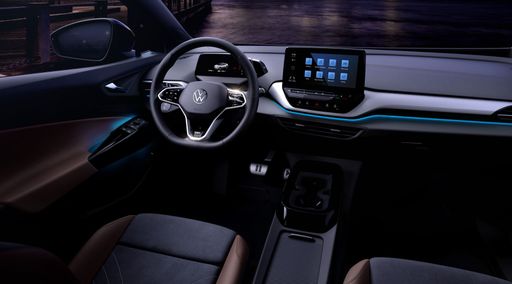 @ Volkswagen AG / VW Media
@ Volkswagen AG / VW Media
 @ Subaru Corporation
@ Subaru Corporation
|
 @ Volkswagen AG / VW Media
@ Volkswagen AG / VW Media
|
|
|
|
Costs and Consumption |
|
|---|---|
|
Price
42800 - 46200 £
|
Price
34600 - 47200 £
|
|
Consumption L/100km
-
|
Consumption L/100km
-
|
|
Consumption kWh/100km
16 - 17.9 kWh
|
Consumption kWh/100km
15.6 - 17 kWh
|
|
Electric Range
416 - 466 km
|
Electric Range
356 - 569 km
|
|
Battery Capacity
-
|
Battery Capacity
52 - 77 kWh
|
|
co2
0 g/km
|
co2
0 g/km
|
|
Fuel tank capacity
-
|
Fuel tank capacity
-
|
Dimensions and Body |
|
|---|---|
|
Body Type
SUV
|
Body Type
SUV
|
|
Seats
5
|
Seats
5
|
|
Doors
5
|
Doors
5
|
|
Curb weight
2013 - 2057 kg
|
Curb weight
1975 - 2248 kg
|
|
Trunk capacity
441 - 452 L
|
Trunk capacity
543 L
|
|
Length
4690 mm
|
Length
4582 - 4584 mm
|
|
Width
1860 mm
|
Width
1852 mm
|
|
Height
1650 mm
|
Height
1619 - 1634 mm
|
|
Max trunk capacity
-
|
Max trunk capacity
1575 L
|
|
Payload
493 - 537 kg
|
Payload
511 - 551 kg
|
Engine and Performance |
|
|---|---|
|
Engine Type
Electric
|
Engine Type
Electric
|
|
Transmission
Automatic
|
Transmission
Automatic
|
|
Transmission Detail
Reduction Gearbox
|
Transmission Detail
Reduction Gearbox
|
|
Drive Type
All-Wheel Drive
|
Drive Type
Rear-Wheel Drive, All-Wheel Drive
|
|
Power HP
218 HP
|
Power HP
170 - 340 HP
|
|
Acceleration 0-100km/h
6.90 s
|
Acceleration 0-100km/h
5.4 - 9 s
|
|
Max Speed
160 km/h
|
Max Speed
160 - 180 km/h
|
|
Torque
336 Nm
|
Torque
310 - 679 Nm
|
|
Number of Cylinders
-
|
Number of Cylinders
-
|
|
Power kW
160 kW
|
Power kW
125 - 250 kW
|
|
Engine capacity
-
|
Engine capacity
-
|
General |
|
|---|---|
|
Model Year
2022
|
Model Year
2023 - 2025
|
|
CO2 Efficiency Class
A
|
CO2 Efficiency Class
A
|
|
Brand
Subaru
|
Brand
VW
|
Is the Subaru Solterra offered with different drivetrains?
The Subaru Solterra is offered with All-Wheel Drive.
The prices and data displayed are estimates based on German list prices and may vary by country. This information is not legally binding.
